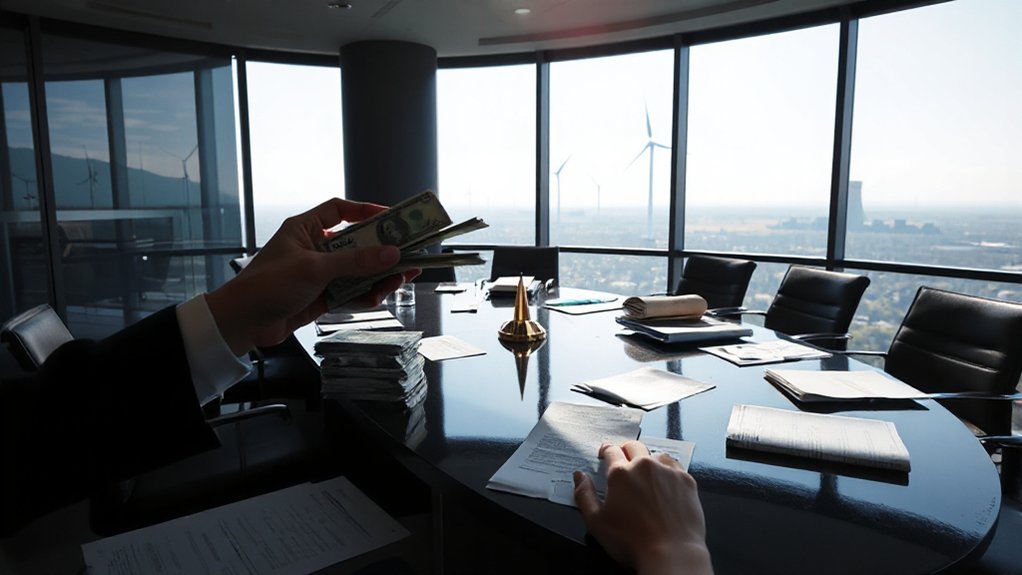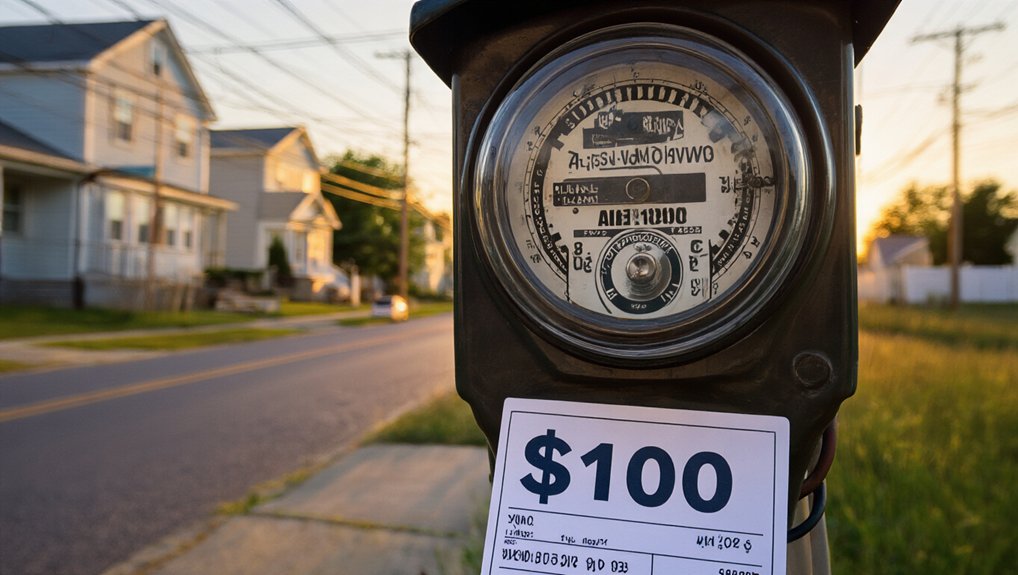While renewable energy promises a cleaner future, it’s become a breeding ground for financial deception and political manipulation. Search no further than the $9 million Ponzi scheme that duped investors with fake anaerobic digesters supposedly converting cow manure into renewable energy. The fraudster didn’t even have engineering credentials—just a knack for creating phony construction schedules and bogus invoices. Investors fell for it. Hard. They thought they’d get natural gas rights, Renewable Energy Credits, and juicy tax incentives. Spoiler alert: they got nothing but stock photos and lies for five years straight. Ray Brewer targeted specifically dairy and green energy industry investors with his elaborate scheme, using falsified bank letters to misrepresent financial commitments from banks.
Green energy’s dark side: where cow manure dreams become financial nightmares and fraudsters harvest tax credits instead of watts.
Money in clean energy isn’t just about scams, though. It’s about influence. Dark money groups are shuttling cash around like it’s a shell game. Take the $400,000 from FirstEnergy that bounced between organizations like One Ohio United before landing in political campaigns. These 501(c)(4) groups raise millions while keeping donors anonymous. Convenient, right? Super PACs join the party too, making sure nobody knows who’s really pulling the strings on energy policy.
Not all the money’s dirty, though. The Inflation Reduction Act is pumping funds into energy communities, helping them shift from fossil fuels while boosting their economies. Energy and Infrastructure Reinvestment programs are refinancing utility costs, saving ratepayers billions. It beats state-level securitization, which costs more to implement. More eligibility means more benefits—cleaning up toxic sites, creating jobs, keeping communities afloat. The transition to renewables could reduce carbon emissions by over 90% in the power sector, which currently contributes 25% of U.S. greenhouse gases.
Then there’s the whole REC market. Each certificate represents one megawatt-hour of renewable electricity. Companies buy them to offset emissions and feel good about themselves. Sometimes too good. Unbundled RECs—sold separate from the actual energy—raise eyebrows about greenwashing. The market works when verified properly, but integrity isn’t guaranteed.
The stakes are high. Not switching to renewables costs us in pollution, depleted resources, and inefficiency. Energy democracy—controlling our own production and consumption—isn’t just environmentally sound. It’s economically smart. The passage of House Bill 6 demonstrated how utilities like FirstEnergy can secure favorable legislative outcomes through strategic political funding. Who knew saving the planet could be so complicated?
References
- https://www.fbi.gov/news/stories/9-million-renewable-energy-ponzi-scheme
- https://energyandpolicy.org/firstenergy-secret-money/
- https://rmi.org/important-clean-energy-policy-youve-never-heard-about/
- https://rmi.org/clean-energy-101-the-rec-market/
- https://www.idc-online.com/technical_references/pdfs/electrical_engineering/The_Hidden_Monetary_Costs_of_Not_Using_Renewable_Energy.pdf
- https://www.youtube.com/watch?v=WCsd87Bv3Y0
- https://www.nature.com/articles/s41560-022-01081-y
- https://www.americanprogress.org/article/clean-energy-will-lower-household-energy-costs/
- https://www.americanprogress.org/article/the-trump-administration-is-allowing-waste-fraud-and-abuse-to-fester-in-the-federal-oil-and-gas-program/
- https://www.ourenergypolicy.org/resources/clean-energy-under-siege-following-the-money-trail-behind-the-attack-on-renewable-energy/








